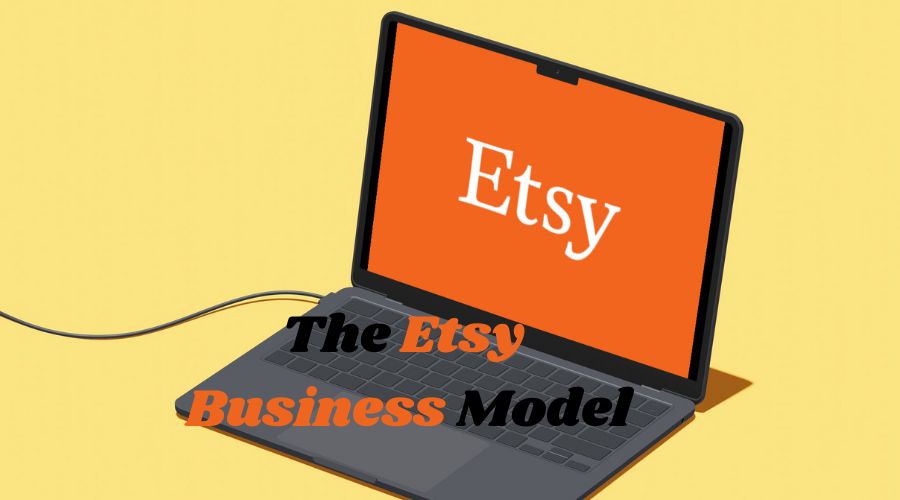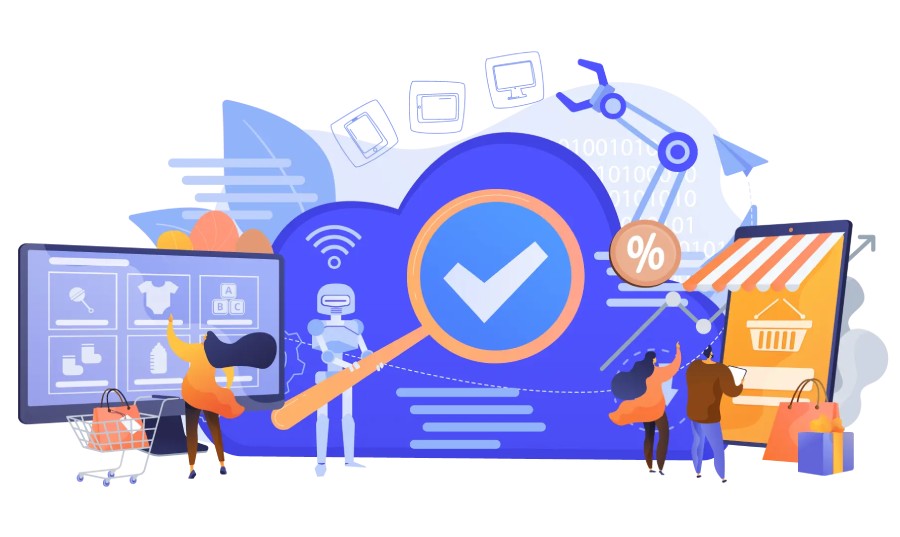
7 Reasons Why Concept Testing Is Crucial For Success
Have you ever wondered why some products become a sensation instantly and others disappear soon after they hit the market? Very often, investors spend a fortune on the latter only to have their product scrapped within a couple of months – or just a few years.
This can happen to the best of us. Take, for example, ESPN’s attempt at a mobile phone service. It was shut down rather swiftly because of its cost and lack of handset features.
There’s also the matter of when products are launched. Sometimes great products fail just because they were launched at the wrong time. The Google Glass concept is an example of this – a product with a high price that was launched too soon.
No matter what the reason, no investor wants their product to fail. Fortunately, there’s a simple and cost-efficient way to avoid said failures and plan the details revolving around your new product launch.
We are talking about concept testing.
If you test your ideas before investing a fortune in them, you can minimize your expenses, maximize the potential for success, and basically increase the competitiveness of your business.
Sounds amazing, right? To help you better understand how this works and why you need concept testing, we’ve created this guide.
What Is Concept Testing?
There are many companies and products in every industry and yet, creative ideas never cease. At times, you’ll be overwhelmed with ideas that you feel strongly about. Sometimes you’ll just come up with one great idea that you feel could make your business a big success.
But, how do you choose between many ideas? More importantly, how do you determine if an idea will be successful and is worth investing your time and money into?
The main goal of a product concept is to create and offer something that people need and will want. That’s the only way it will sell, which is why you need to know whether or not your target audience will like your product when you offer it to them.
This is what concept testing serves for. A product cannot be a success if customers don’t want it, and concept testing can help you determine if this will be the case. Based on the data you collect with concept testing, you can also determine the best time and methods to launch, market, and sell your product.
Concept testing is the last stage of product discovery. It’s done when you have a developed concept that you want to introduce to your target audience. At this stage, your goal is to introduce it to selected respondents to see if it’s worth following through.
Quality concept testing can tell you whether or not people will love the product, if your concept needs to be tweaked for better results, what the best value for it will be, etc.
Yes, you can learn a lot by conducting simple tests. The best part about this is that you can do it easily and without any big expenses.
How To Do Concept Testing Without Much Effort
The answer to this lies in the right testing service. Today, that service is Maze, one of the most-used solutions for creating tests, using them, and analyzing test results. Among its different testing options, Maze offers concept testing. You can use this tool to customize ready templates, design engaging tests, share them with the respondents, and even analyze the results.

Why You Should Be Conducting Concept Tests
Now that you know how this is done and what it can help you with, let’s move on to the benefits it offers. Concept testing will prove highly valuable at a point where you have a ready product concept and want to confirm that it’s a smart investment. It will also help you make sure that you’re offering the best user experience when you launch the said product.
There are plenty of reasons why businesses conduct said tests, but let’s take a look at the top seven.
1. Save Money
Millions of products appear in the world every day but, according to Harvard Business School’s research, 95% of them fail. Just imagine the number of resources spent on these products, as well as the effort and hopes of those that created them – all going down the drain soon after the products are launched.
If you validate your product concepts prior to investing effort, time, and money, you’ll reduce the odds of joining those 95%. It’s important to learn whether or not your idea will succeed, or at least get some guidance on how to make it more successful.

While concept testing doesn’t provide any guarantees, it helps you maximize the potential of your product concept. Not only will you learn how promising your investment is, but you can use the data collected with these tests to improve the product and your strategies.
There are two ways to save money with concept testing.
The first is by avoiding product concepts that have no promise and don’t interest your target audience. The latter is by fixing the things that might be an issue when you launch the product and cost you a lot more afterward.
2. Eliminate Doubts And Boost Confidence
Wouldn’t you feel more confident about a product that has shown great results during the testing stage? After all, you’ll conduct those tests on your target audience, possibly existing customers. This will tell you how willing they’d be to buy your product when you put it on the market, and when they are optimistic about it, it can eliminate those doubts you are having.
The data collected from concept testing gives the product managers and companies peace of mind. It also provides them with helpful data to back up their idea, which can do wonders with stakeholders, other investors, and team members.
Bringing a concept to life is a challenging task, but with the right incentive and tons of data, you can convince everyone to believe in it. For your team members, this will mean more motivation and trust in your new idea.
Concept testing might not eliminate the fear of failure altogether, especially when you’re investing a lot into the project. Still, it is very useful for decreasing doubts and uncertainty.

3. Filter Different Ideas And Pick The Best Concept
You can have many ideas for new products. You can also have many ideas for a single product. There are tons of ways to create it, name it, market it, and sell it. Concept testing can help you a lot with this.
For starters, you can use it during the brainstorming phase and figure out which of your ideas will be successful. Rather than relying on guesses and subjective opinions, you can use real data from actual customers and decide which products to shelve and which to create.
In other words, concept testing will leave you with the idea that has the best potential. You can use the data you collect to convince the people in your team, shareholders, and investors of the most promising idea.
How is this possible?
When you use the quantitative and qualitative techniques that this testing offers, you can better understand the customer’s point of view. You can see if your ideas tackle their pain points, determine if your version of the product is the best it can be, and figure out how to market it to get the best results.

4. Steer Clear Of Bad Investments And Decisions
If you conduct concept testing before launching a product, this will delay the process a bit. However, with tools like Maze, you can speed up the process and minimize the time spent to collect useful product data.
In the long run, this can really pay off. Most products require tons of money to be developed and put on the market. Testing can prevent big financial losses and in many cases, save businesses altogether. Investing in a bad idea can be devastating for your business’ finances.
Even if you can afford to create an unsuccessful product and try again, why would you do this if there’s a way to avoid it?
Failed products are not good for your brand’s reputation and customers that are disappointed with them might not come back when you offer them something else. Research shows that at least 17% of customers will leave a brand after a single bad experience, while only the most loyal ones will give it another chance.
COncept testing offers you a way to ensure quickly that your plans have a good chance of success. If the test results are really negative, this will show you that you need to stay away from that idea or at least make some changes in the development process to meet the expectations of your customers.
5. Discover New Business Opportunities
Whether you learn that you need to optimize some of the features of your products or create a new solution for your customers’ pain points, concept testing can open up new growth opportunities. Very often, the answers you get in these tests can give you a new idea or show you what your customers need from you.
It is not uncommon to find a new, better idea thanks to concept testing and throw the original one away. With this type of testing, you’ll be exploring a variety of solutions to a customer’s pain point. Their insight will tell you where to invest your time and your energy, which translates to business growth.
Before you actually ask the consumers if they like your idea, the concept is just an assumption. This will tell you if your idea appeals to the consumers. When they share their opinion, you’ll get an idea of what works and what doesn’t about your product concept, and can change it accordingly.
Yes, customers sometimes respond negatively to product concepts, which can be disappointing if you had high hopes for them. However, you shouldn’t let this disappoint you. On the opposite, you can use this as the basis for your new product concept and learn from it. Even a failed concept has value for a smart investor.
6. Understand What Matters To Consumers
Let’s say that you know that your product concept will be a success due to the data you have collected so far such as requests from customers, trends on the market, etc. You have a great idea that is sure to succeed, but there’s still a lot to decide about it.
What price will you give your product? Will it fit its value and appeal to the consumers? How will you market the product? What will you name it? How will you package and brand it?
The questions just keep coming and you need to be very careful when choosing the answers. These will affect how people accept and welcome your new product, so you must make sure that everything is flawless before you launch it.
In this way, concept testing is perfect to help you determine the ideal price, name, marketing strategy, and everything else related to the launch. Based on the data you collect, you can decide on where you’ll invest your money, how you’ll promote the product, and what you’ll charge for it.
The answers from respondents will shed light on the inefficiencies, blind spots, and problems that might occur when you create the product and launch it. Basically, you’ll learn more about your audience’s needs and expectations and can build your strategy based on that.

7. Fix Problems Before Launching The Product
Yes, concept testing itself will cost a bit of money, but it will pay off a lot more in the long run. For example, when you launch a software product, correcting an existing error costs around 100 times more than it would cost if you fixed it during the development phase.
The sooner you undertake concept testing, the more time and flexibility you’ll have to optimize your idea. Fixing the flaws before they become an issue for the consumer is smart not only because you’ll save tons of money, but also because of the user experience.
Concept testing shows investors what elements and features won’t fly with consumers. You can use the data to determine what to eliminate from your product, which will save you money and time. You can also use it to figure out what to add to improve the concept and give the product more value.
Are You Ready To Test Your Product Concepts?
Concept testing only works if you have the right questions, the perfect design, and people from your target audience to provide their answers. Once you collect the data from such tests, you can analyze and use it to pave the way to success for your business.
If you have some great ideas and want to see if they’ll work, as well as get an insight on how to make it happen, you should do some testing. However, remember that this should be done prior to the launch and when you have well-thought-out ideas. Only this way will you be able to gather the information ahead of the launch and prime your products for success.
Author’s bio:
Nadica Metuleva is a freelance writer who’s passionate about creating quality original content. She holds a Master’s degree in English teaching and a Bachelor’s degree in translation. With 7 years of experience in the freelance writing industry, Nadica has become proficient in creating content that captivates the audience, drives growth, and educates.

The Etsy Business Model: How Does Etsy Make Money?

How eCommerce Solutions Are Revolutionizing the Way We Do Business?

How to Protect Your Personal Data Online

6 Tips for Being a Successful Fleet Manager

How Should you Analyse Competitors Social Media Strategies




